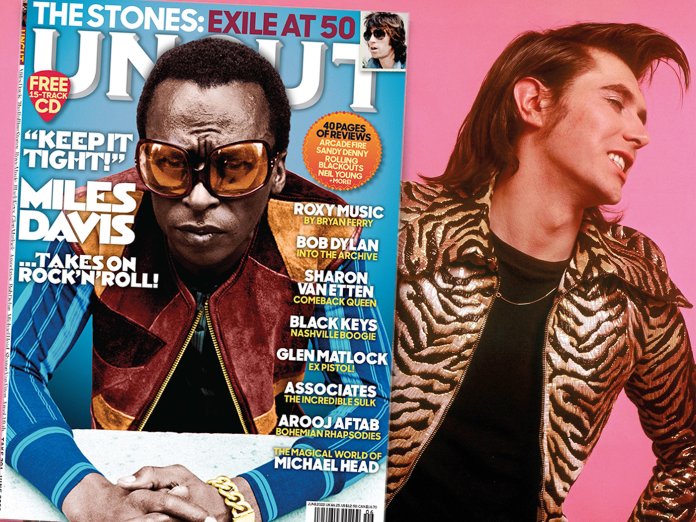In the current issue of Uncut, Bryan Ferry writes exclusively for us about Roxy Music's eight studio albums - from their 1972 self-titled debut to Avalon, a decade later. To whet your appetite for Ferry's wry and insightful observations, here he is on the band's genre-bending debut... "I started ...
In the current issue of Uncut, Bryan Ferry writes exclusively for us about Roxy Music‘s eight studio albums – from their 1972 self-titled debut to Avalon, a decade later. To whet your appetite for Ferry’s wry and insightful observations, here he is on the band’s genre-bending debut…
“I started putting the band together in 1970 when I began working with Graham Simpson, who had played in my college band, The Gas Board. Later that year I met Andy Mackay and he joined us with his synthesiser and oboe, and later saxophone. At this point I was writing the songs on piano and at the same time trying to put together the band to play them. We didn’t have a tape recorder, so Andy suggested his friend Brian Eno could come and record us. Eno brought his huge reel-to-reel Ferrograph machine, and ended up staying on and becoming part of the band, using Andy’s VCS3 synthesiser to create sounds and treat the instruments we were playing. We hit it off, and by the time we started recording the album we had the complete band.
I liked many kinds of music, so stylistically I was keen for the songs to be wide-ranging and not follow one particular channel. I was lucky with this band in that we had so many different sounds to play with and it was a great opportunity for me to write interesting stuff. Consequently, the first album was an exploration of many styles and so diverse that it indicated many different futures the band could follow. The first Roxy album is an unusual collage of musical elements, and the songs themselves, if you break them down, are just simple experiments in different genres.
This was the first album that any of us had made. We were all hungry to learn and new to the experience of being in a recording studio. It was a dream come true to be able to do this.
EG Management signed us up to Island Records, and they brought in Pete Sinfield from King Crimson to produce us. He seemed to be ideal, very enthusiastic and cheerful. The whole process was a delight. The record was made in a rather bizarre place called Command Studios on Piccadilly, an old movie theatre. How appropriate…”



